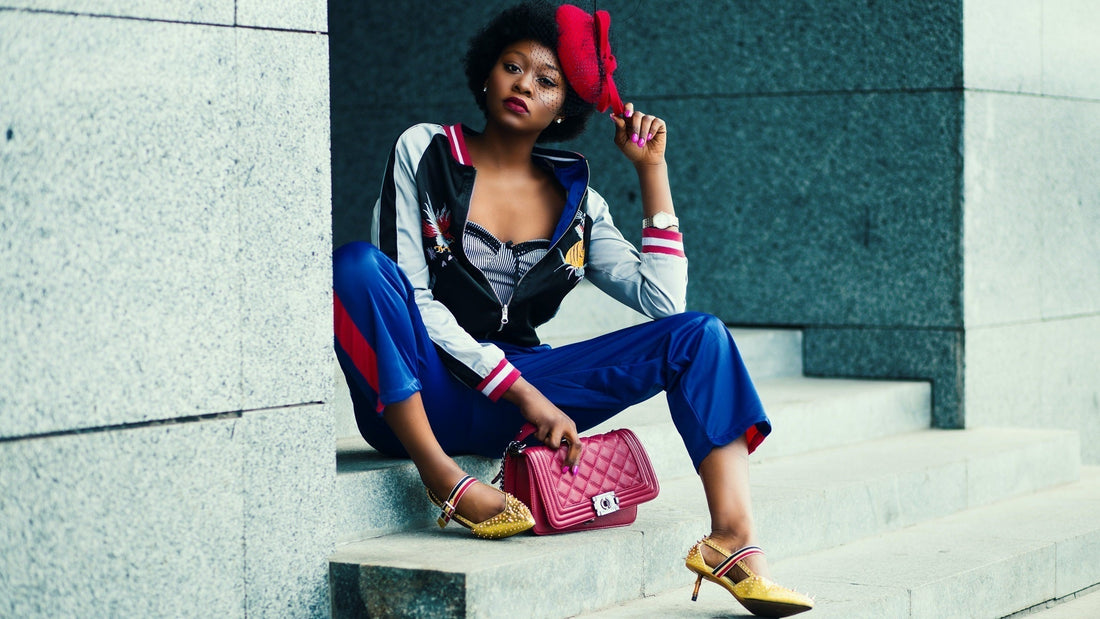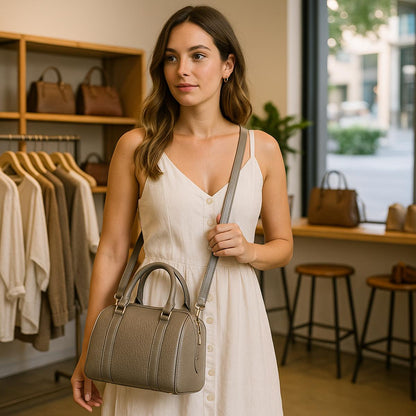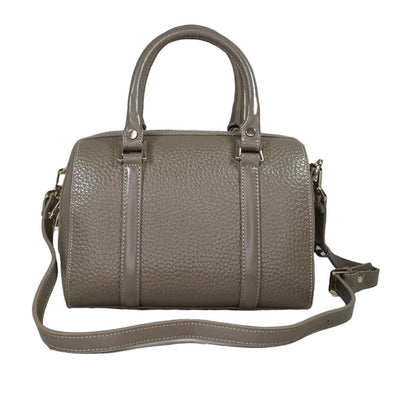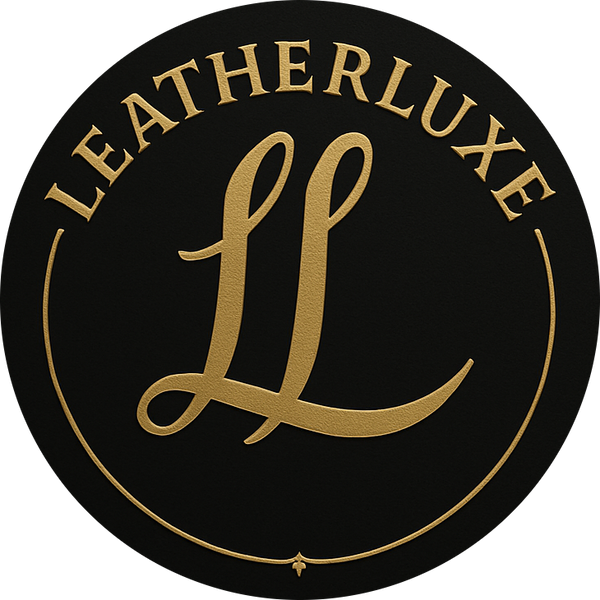
How Black History Influenced the Evolution of Fashion Trends
From Harlem dance halls and civil-rights catwalks to hip-hop runways and global luxury houses, Black style has steered the world’s fashion story. Here’s how those influences show up in today’s silhouettes, textures, and the way we carry our lives — literally — in our bags.

Why Black fashion history matters for your wardrobe now
Fashion is more than clothes; it’s a language of identity, power, joy, protest, and belonging. Across the last century, Black communities have translated life into style — elevating tailoring, remixing luxury codes, popularizing silhouettes, and redefining “everyday” accessories into status pieces. If you love structured shoulder bags, logo play, sporty-chic sneakers, the beret-and-leather pairing, oversized outerwear, or the minimalist tote-as-hero, you’re already carrying this history.
Harlem nights, swing, and the power of the suit
In the mid-20th century, nightlife and music incubated bold, body-positive style. Oversized jackets, strong shoulders, tapered trousers, and attention-grabbing accessories weren’t just trends — they were claims to space. These sharper proportions later resurfaced in 1980s luxury fashion and hip-hop tailoring, and today’s blazers and structured handbags borrow the same energy: presence, polish, and confidence.
From zoot silhouettes to modern tailoring
The exaggerated “big jacket, narrow ankle” proportion that cycles through fashion owes a debt to mid-century nightlife and youth culture. It challenged ration-era conformity with extra cloth and extra attitude — a look that continues to echo through today’s power suiting, broad-shouldered coats, and boxy, architectural bags that read like portable couture.

Activism as aesthetic: dressing for dignity and disruption
During the civil-rights era, fashion operated as strategy: sharp tailoring, polished dresses, and “Sunday best” communicated dignity under pressure. Late-1960s movement style added leather, denim, and berets — clothing as uniform, symbolism as design. That language still resonates in luxury and streetwear: matte black palettes, military-adjacent detailing, badges, and utility features.
“Black is Beautiful” — beauty, hair, and dress on their own terms
In the 1960s, photographers, designers, and models in Harlem championed natural hair, darker complexions, and clothing inspired by African heritage. The movement reframed beauty standards and seeded decades of design ideas: rich earth tones, beadwork and metal hardware, bold geometric forms, and garments that center the wearer’s natural silhouette. You can feel that sensibility in today’s neutral knits, golden hardware, and the unapologetic minimalism of a clean, sculpted tote.
Studio lights and dance floors: 1970s creativity
Disco-era designers brought saturated color, fluid stretch fabrics, and body-celebrating cuts to the mainstream. Those ideas translate cleanly into modern accessories: gleaming hardware, supple leathers that move with you, and compact crossbodies that keep hands free while you’re out — a balance of function and flair that never dates.
Hip-hop rewrites the dress code (and everyone follows)
From the Bronx to global runways, hip-hop turned everyday pieces into icons: bucket hats, athletic shoes as status, gold hardware, and logo-logic that remixed the elite’s monograms for new audiences. The ripple effect reshaped luxury — oversized outerwear, sporty details, and statement bags you could spot from across the room. Streetwear’s rise is not a detour from “fashion”; it is fashion. Today’s main-street handbags — from puffed leather textures to compact crossbodies — carry that remix spirit.
Dapper customization & logo remixing
In 1980s Harlem, made-to-measure ateliers pioneered a new visual language by reworking luxury signs into bold, ground-up couture for local stars, athletes, and musicians. The point wasn’t imitation; it was invention — a way of asserting presence and crafting identity when top houses weren’t yet listening. Decades later, those same houses embraced the aesthetics (and the people) who originated them, as collaboration replaced condemnation. Today’s co-branded capsules and remix drops trace directly back to that energy — and you see it in bags with confident hardware and clean, logo-forward surfaces.

From ateliers to megabrands: the modern era
The 2010s cemented what the 80s–90s started: designers who grew up in hip-hop and Black cultural spaces now direct global maisons and define the mood. Minimal totes became “It” bags because they matched a new uniform — hoodies and tailoring; sneakers and suits. Inclusive brands reframed the “status bag” as a shared symbol rather than a gatekept object. Price-accessible, cleanly designed carryalls became instant cult classics because they fit the times: democratic, practical, and iconic.
What this history looks like in handbags
- Clean geometry: A structured rectangle (clutch or shoulder bag) nods to tailoring’s sharp lines.
- Statement hardware: Zips, rings, chains, and polished buckles trace back to remix culture and performance wear.
- Sporty practicality: Crossbody straps and hands-free formats come from streetwear’s function-first DNA.
- Material storytelling: Pebbled and embossed leathers echo the textured richness championed by Black designers and stylists across eras.

How to wear the legacy: styling ideas (with bags)
1) Polished power, everyday ease
Start with a crisp blazer, straight-leg denim, and a white tee. Add a structured clutch or small shoulder bag with gold hardware — it’s the quiet-luxury way to channel the sharp, dignified lines of mid-century tailoring while keeping your toolkit light.
2) Minimalist street-smart
Combine a monochrome hoodie set with leather loafers or sleek sneakers and a barrel bag. The sporty-meets-refined balance honors hip-hop’s high/low remix — practical, sculptural, and cool.
3) Texture play for night
Try a satin slip or tailored jumpsuit with a croc-embossed clutch. The mix of sheen and texture is pure disco-era glamour translated for now — and the handheld silhouette keeps it modern.
Design cues to look for when you shop
- Hardware quality: Smooth zips and solid D-rings won’t snag or chip — and they carry the jewelry-adjacent polish that performance wear and stage fashion made essential.
- Strap versatility: Detachable crossbody + shoulder drop = one bag, many lives — a philosophy born from making style work for real life.
- Proportion: Bags that echo tailoring (structured base, clean face, precise edges) elevate casual outfits instantly.
- Texture: Pebble or embossed finishes hide wear, add depth, and photograph beautifully — think editorial, every day.

A quick timeline of influence
- 1950s–60s: Movement dressing: dignity, uniformity, and symbolism — polished tailoring and purposeful accessories.
- Late 1960s: “Black is Beautiful” centers natural hair and Afro-diasporic references; bold color and sculptural adornment go mainstream.
- 1970s: Studio culture: fluid fabrics, high shine, and night-friendly bags that carry just enough.
- 1980s–90s: Hip-hop’s global rise: logo logic, athletic-luxury, and the shoulder bag as a status signal.
- 2000s–today: Designers from these communities lead major houses; minimal totes and compact crossbodies become universal style.
Buying better: a short guide to quality leather
Look for top-grain or full-grain leather (durable, ages beautifully), consistent stitching, lined interiors, and hardware that feels weighty in the hand. A good bag should stabilize on a surface, close smoothly, and make essentials easy to reach. It’s not only craftsmanship — it’s confidence.
Shop the story
- Red Leather Clutch — statement color, compact power.
- Light Brown Croc-Style Clutch — rich texture, day-to-night ease.
- Beige Barrel Shoulder Bag — sculptural silhouette, roomy interior.
FAQ
How did movement fashion influence today’s accessories?
Movement style used uniforms and symbolism — think berets, leather, pins, utilitarian pockets — to signal purpose. Modern accessories borrow that clarity: clean shapes, functional compartments, and hardware with meaning.
Why do “minimal” bags feel luxurious?
Minimalism shifts the story from excess to precision: exacting lines, impeccable leather, and just-right hardware. That sensibility crystallized when streetwear met high fashion — a merger led in large part by Black creatives — and the effect is everywhere from micro clutches to oversized totes.
